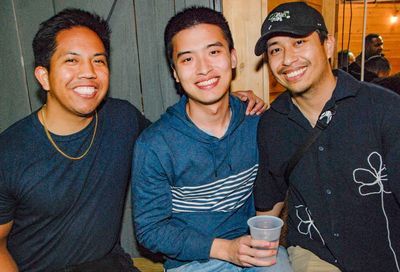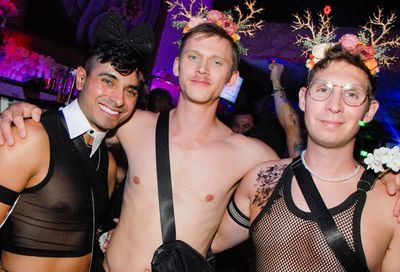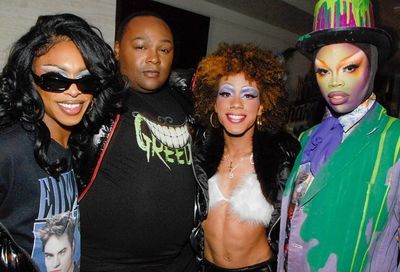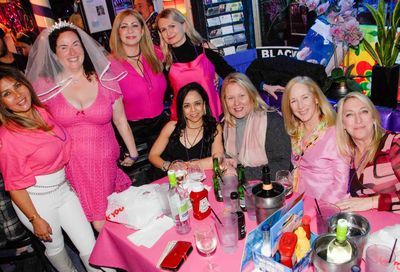Temporary Truce: United Nations protects LGBTQ rights at 2018 Olympics
Russia and Egypt tried -- and failed -- to undermine LGBTQ protections at the 2018 Olympics.

The United Nations avoided crisis this week when all 193 member states voted to approve a pro-LGBTQ resolution ahead of the Pyeongchang Olympics in 2018. The Olympic Truce Resolution, approved every two years prior to the start of a Winter or Summer Olympics, is part of a long tradition in which nation-states agree not to engage in geopolitical conflicts directly before and after the Olympic Games. Usually such resolutions are approved without hassle.
But after the 2014 Sochi Olympics, there were concerns about the impact of Russia’s “anti-propaganda” law, which prevents people from speaking positively about homosexuality. To protect athletes from anti-gay discrimination at future Games, sexual orientation was added to Principle 6.
“Principle 6 is essentially the nondiscrimination clause of the Olympic charter,” says Hudson Taylor, co-founder and executive director of Athlete Ally. “Sexual orientation was added to the language of Principle 6, and then built into the bidding process, so countries that are bidding on a games have to agree to abide by those principles.”
On Monday, the UN’s member states agreed to adopt the Olympic Truce Resolution with Principle 6 intact, avoiding a roll call vote that could have placed a number of nations on record as opposing the resolution, thereby undermining its efficacy.
In the days leading up to Monday’s vote, a group of countries hostile to LGBTQ rights, led by Russia and Egypt, threatened behind the scenes to vote against the Resolution unless all references to Principle 6 were removed.
According to Taylor, the hypothetical situations that could occur if protections were removed would be highly problematic. For example, during the Sochi Olympics, there was concern that an athlete who won a gold medal and kissed their partner to celebrate could be fined or arrested under Russia’s anti-gay law.
In another instance, Kazakhstan put forth a bid to host the Olympics at a time when lawmakers in the country were trying to pass a law similar to Russia’s. But human rights advocates pointed out that it would violate Principle 6 and thus hamper Kazakhstan’s bid. Three days later, the proposed anti-LGBTQ law was dropped.
“Without those explicit protections for sexual orientation, in countries without legal protections, we [risk] putting the Olympic Games in places where people can really be harmed,” Taylor says.
Prior to the vote, Athlete Ally released a letter addressed to UN member states, signed by 17 prominent LGBTQ Olympians, that called for the approval of the resolution, with no amendments. Signatories included tennis legends Billie Jean King and Martina Navratilova, diver Greg Louganis, basketball star Breanna Stewart, swimmer Casey Legler, and rower Gearoid Towey.
Siri May, the United Nations program coordinator for OutRight International, says the inclusion of Principle 6 doesn’t affect the ability of athletes to compete in the games, but is symbolically important.
“The mention of sexual orientation at the UN General Assembly is limited to two resolutions: one of extrajudicial executions, and the other establishing the first independent expert on sexual orientation or gender identity,” May says. “Because there’s so little mention of LGBTI people in the United Nations, every mention, even an indirect one like this, matters, because it gives us visibility. Unless we have visibility, violations of human rights can happen…. It’s easier not to respect the rights of LGBTI people if they’re not mentioned.”
While Principle 6 remained unscathed in the current fight, human rights advocates warn that the same countries will likely attempt to excise it in 2019, when the Olympic Truce Resolution must be renewed ahead of the 2020 Tokyo Olympics.
Louis Charbonneau, the United Nations Director at Human Rights Watch, says Egypt and Russia have led crusades against the recognition of human rights at the United Nations, opposing the creation of an independent expert on sexual orientation and gender identity, and even trying to get words like “human rights” removed from as many official UN documents and resolutions as possible.
Charbonneau calls it part of a “sustained effort” and an “ongoing strategy” employed to undermine existing protections. Other nations that have been involved in pushing anti-LGBTQ actions at the UN include members of the African Union and the Organization of Islamic Cooperation.
In recent weeks, Egyptian authorities have arrested dozens of people perceived to be LGBTQ, and a member of parliament has introduced a bill that would criminalize life, speech and activism by LGBTQ Egyptians or their allies. In Russia, the government has essentially ignored reports of ongoing persecution, including the torture and imprisonment of LGBTQ people, at the hands of authorities in the republic of Chechnya.
Charbonneau warns that advocates for equality have to be vigilant in protecting against future attempts to erode equality measures.
“This is an ongoing thing that shows up a few times a year, particularly when they’re talking about LGBTI rights,” he says. “This particular fight, of making sure that this language stays in this resolution, is just a small battle in a larger war that is going to continue to be waged.”
Support Metro Weekly’s Journalism
These are challenging times for news organizations. And yet it’s crucial we stay active and provide vital resources and information to both our local readers and the world. So won’t you please take a moment and consider supporting Metro Weekly with a membership? For as little as $5 a month, you can help ensure Metro Weekly magazine and MetroWeekly.com remain free, viable resources as we provide the best, most diverse, culturally-resonant LGBTQ coverage in both the D.C. region and around the world. Memberships come with exclusive perks and discounts, your own personal digital delivery of each week’s magazine (and an archive), access to our Member's Lounge when it launches this fall, and exclusive members-only items like Metro Weekly Membership Mugs and Tote Bags! Check out all our membership levels here and please join us today!




















